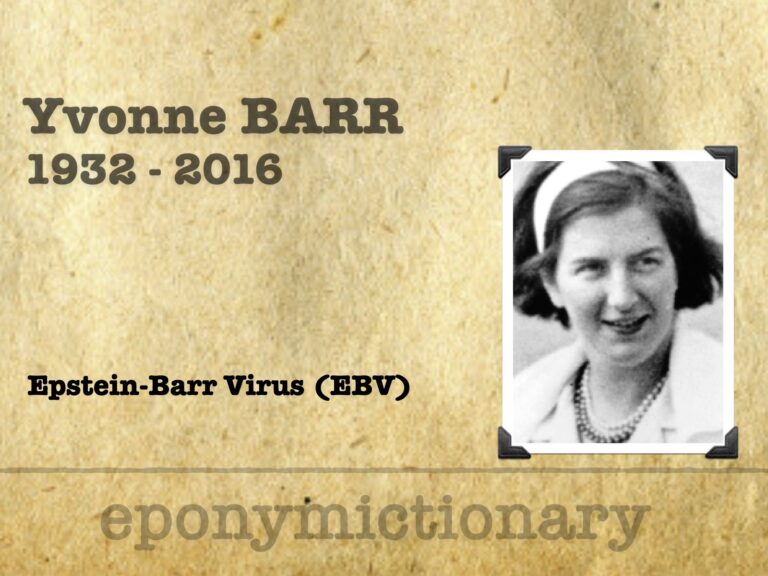
Yvonne Barr
Yvonne Margaret (née Barr) Balding (1932 - 2016) was an Irish virologist. Co-discoverer of Epstein–Barr virus (EBV) (1964)

Yvonne Margaret (née Barr) Balding (1932 - 2016) was an Irish virologist. Co-discoverer of Epstein–Barr virus (EBV) (1964)
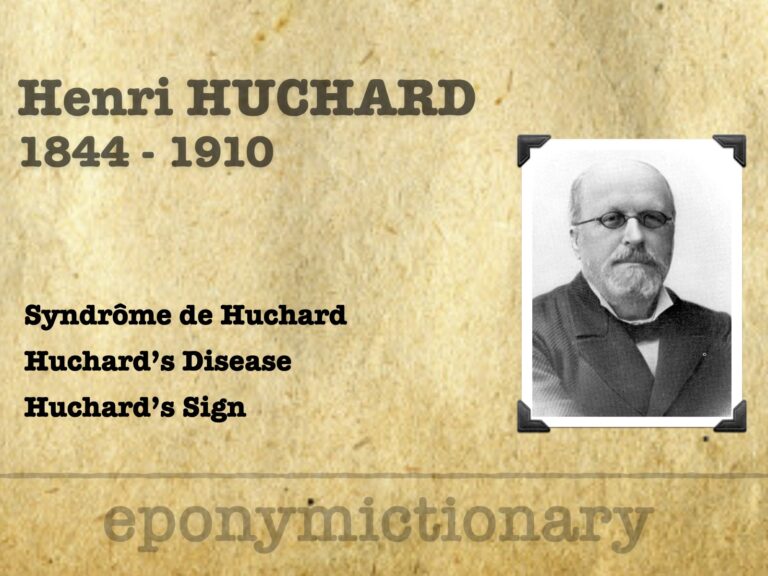
Henri Huchard (1844–1910), French cardiologist at Necker, defined “cardio-arterial” disease, described Huchard’s sign, and helped shape early hypertension care.
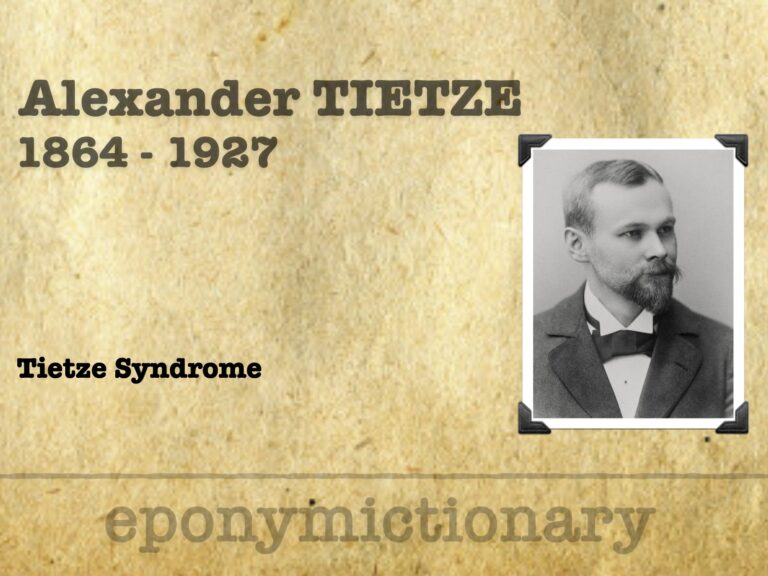
Alexander Tietze (1864–1927), German surgeon who described Tietze syndrome. Expert in emergency surgery and civic leader in Breslau during WWI.
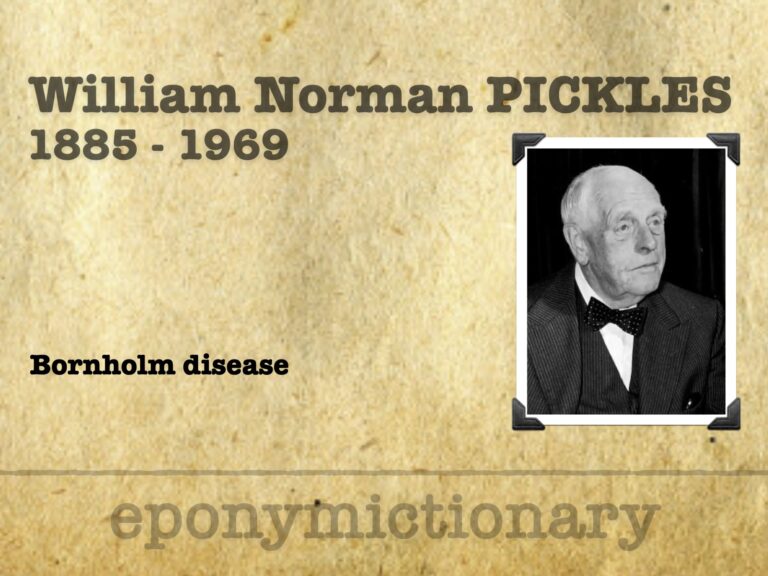
W.N. Pickles (1885–1969), rural GP and epidemiologist, defined Bornholm disease in Britain and shaped modern public health through detailed field observation.

Texidor’s Twinge (Precordial Catch Syndrome): benign, sharp chest pain in youth, first described in 1892, clarified by Miller, Texidor, and Asher in the 1950s.
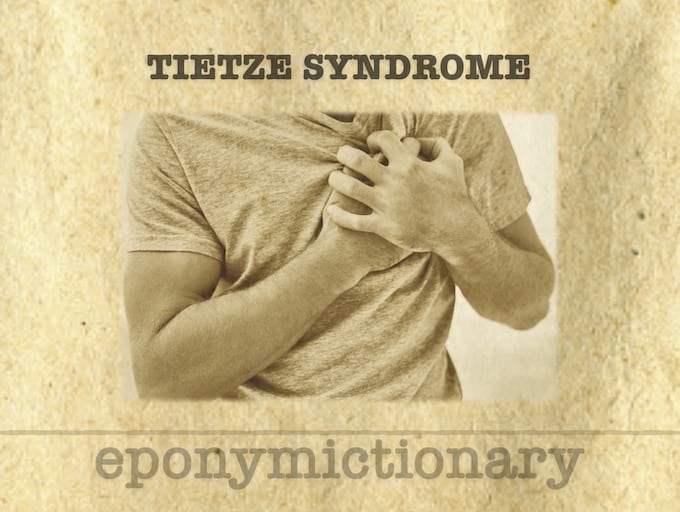
Tietze syndrome: benign swelling of upper costochondral cartilage, causing localized chest pain. Often confused with costochondritis; self-limiting.
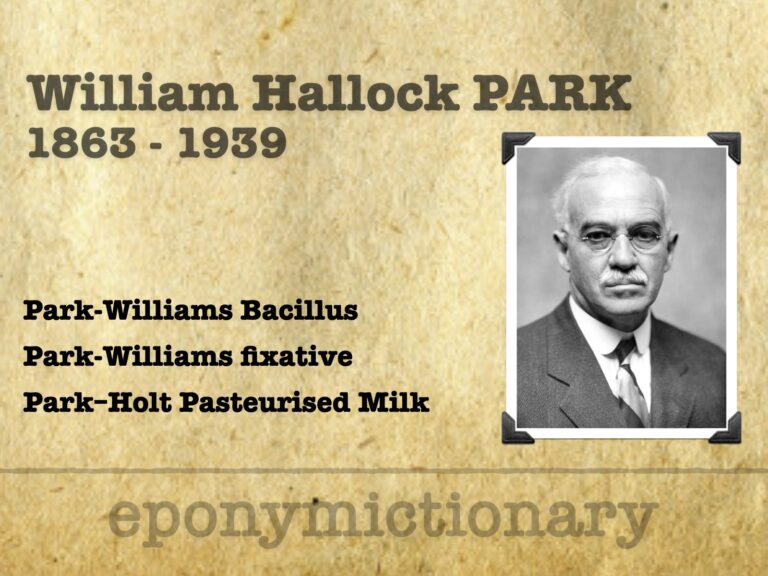
William H. Park (1863–1939), NYC bacteriologist who advanced diphtheria antitoxin, milk safety, and defined ethical dilemmas in the case of Typhoid Mary.
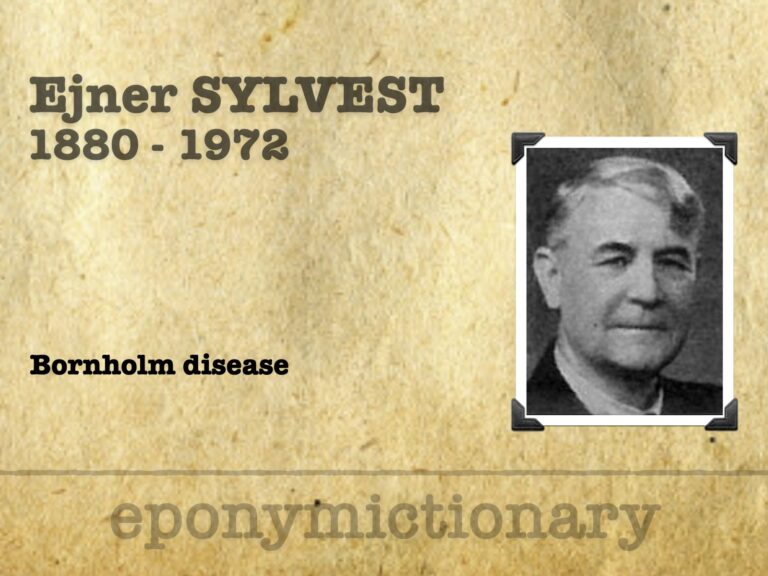
Ejner Oluf Sørensen Sylvest (1880-1972) Danish physician named and defined Bornholm disease, framing epidemic pleurodynia decades before its viral cause was confirmed.
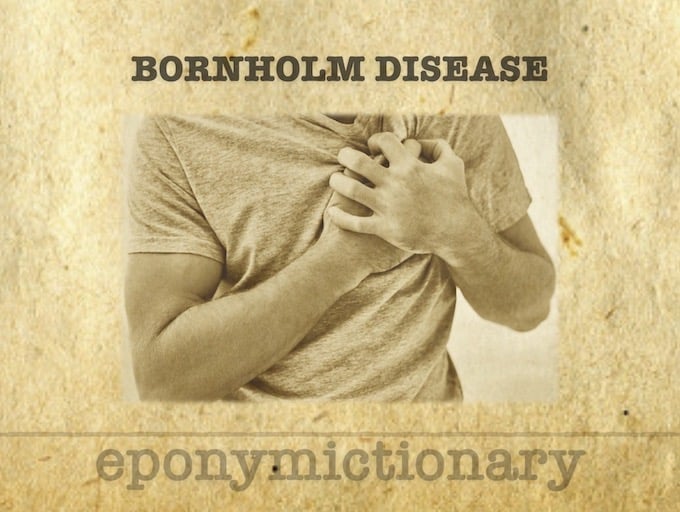
Acute, transient viral myositis involving intercostal and abdominal muscles associated with Coxsackievirus B. Eponym: Ejner Sylvest (1930)
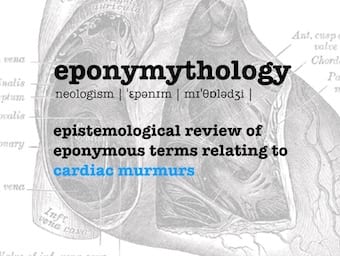
Eponymythology: heart murmur eponyms and named cardiac murmurs. Related eponyms, the person behind their origin, their relevance today, and modern terminology.

Defining Flow: A Journey Through History and Science. The idea has been simmering for centuries, crossing disciplines, philosophies, and eras.
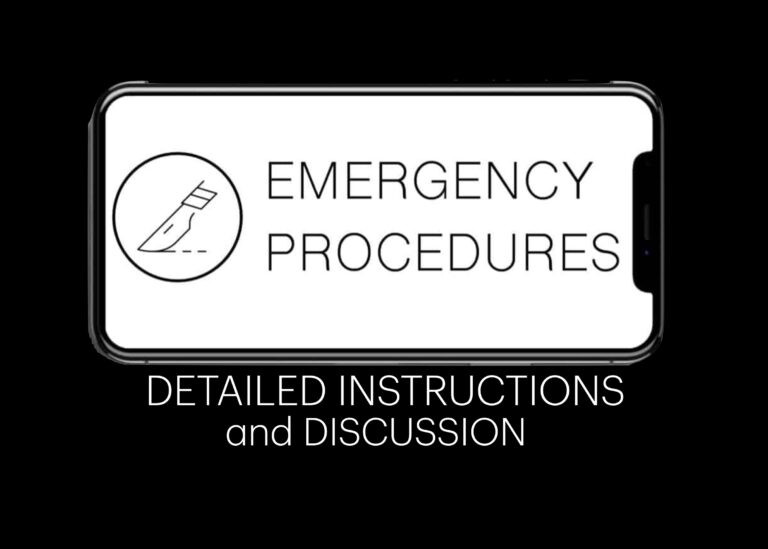
Emergency procedure, instructions and discussion: Surgical Cricothyroidotomy - inability to oxygenate and ventilate with (BVM, LMA, ETT) and age >10years